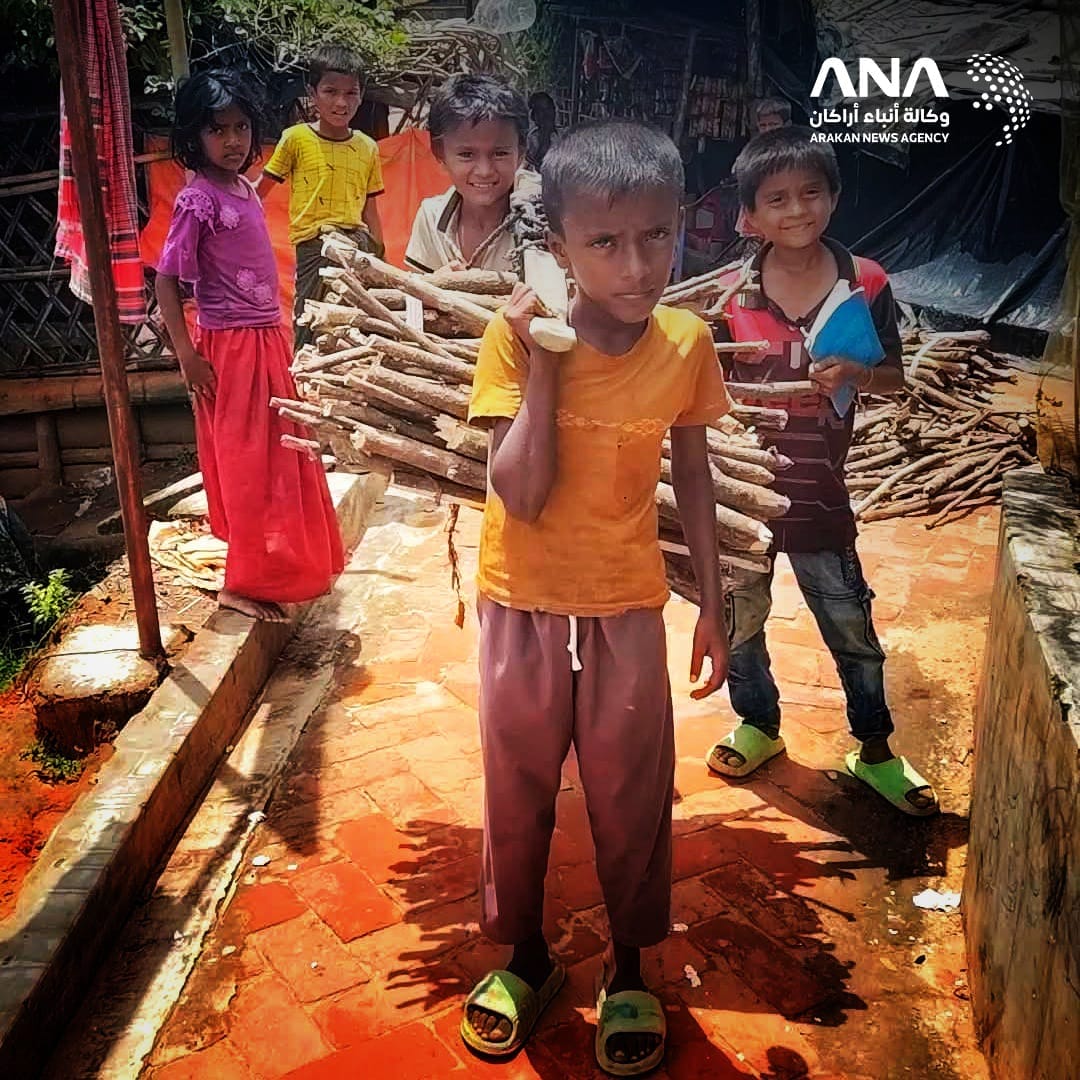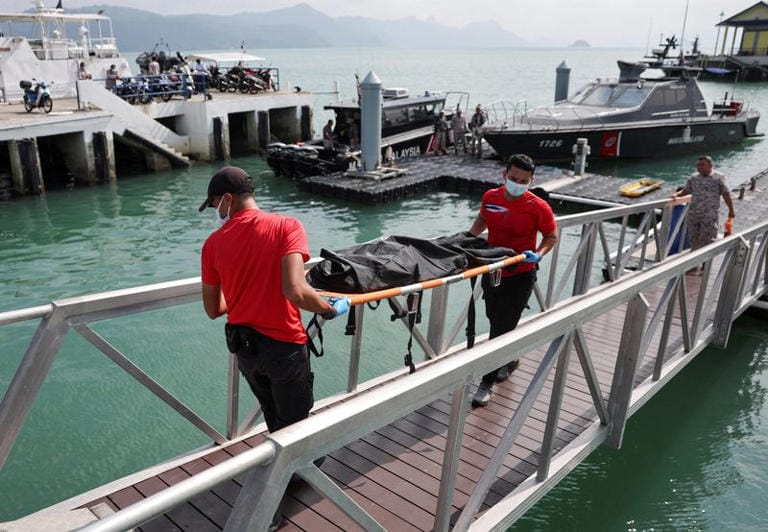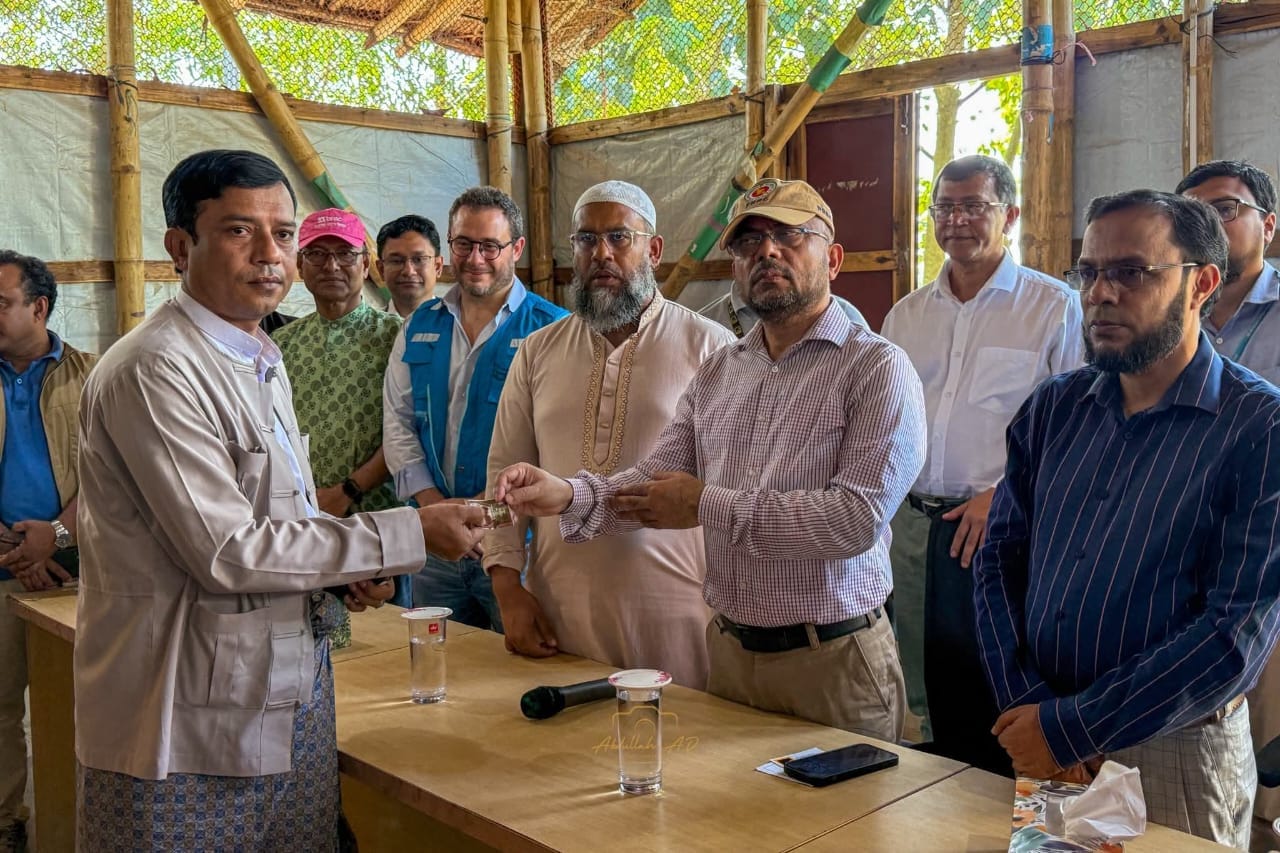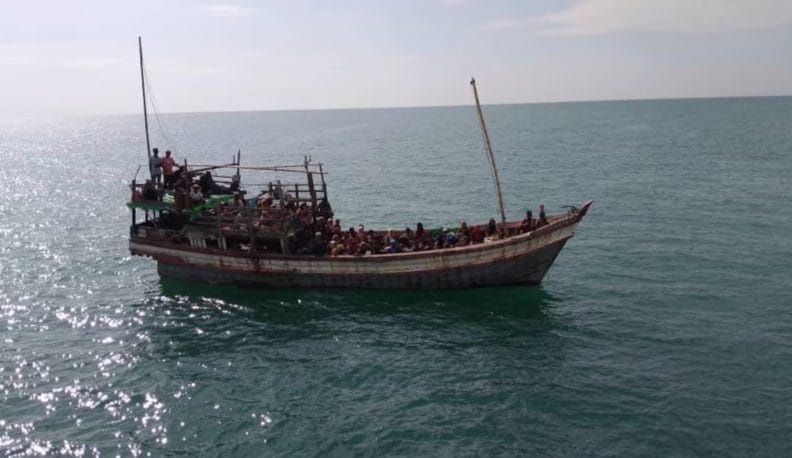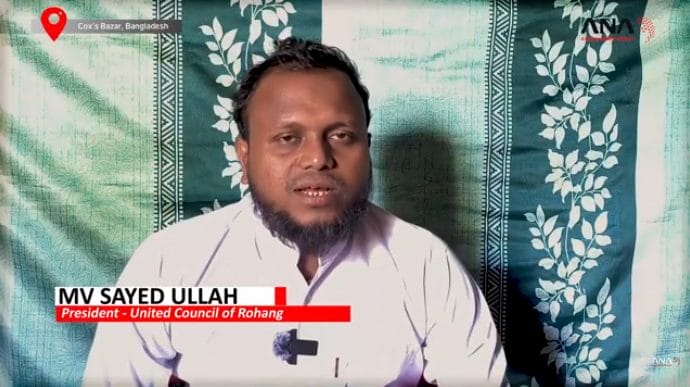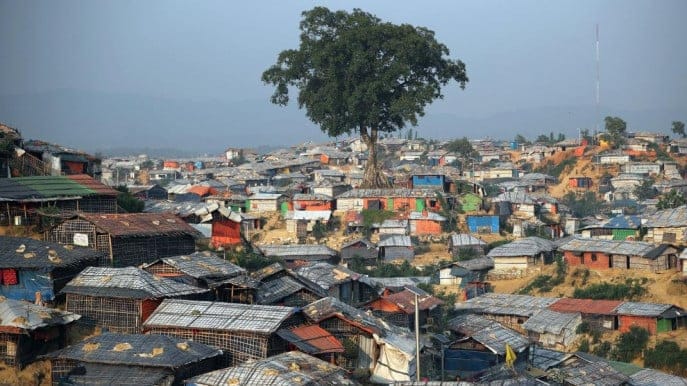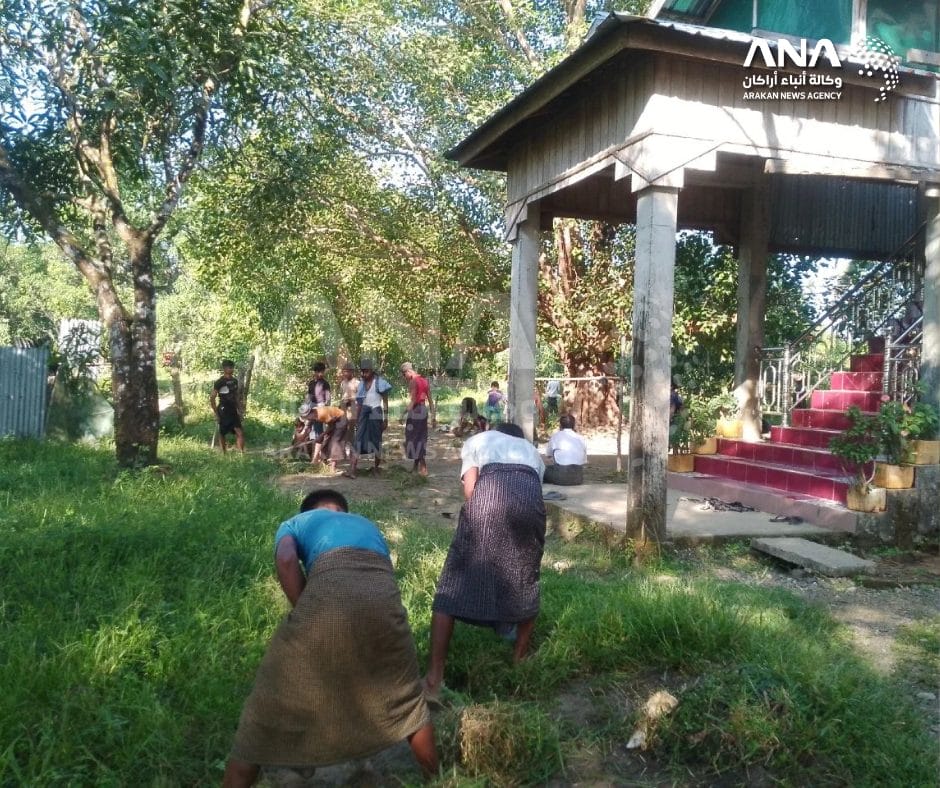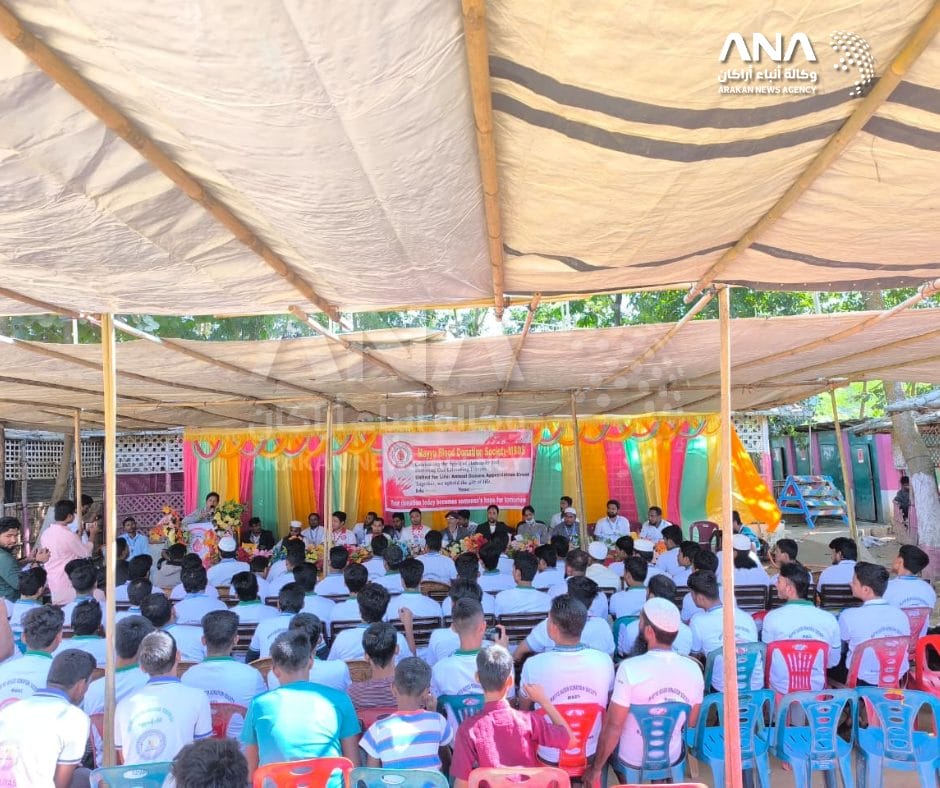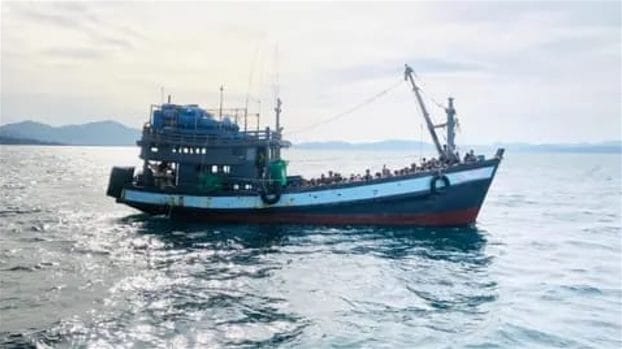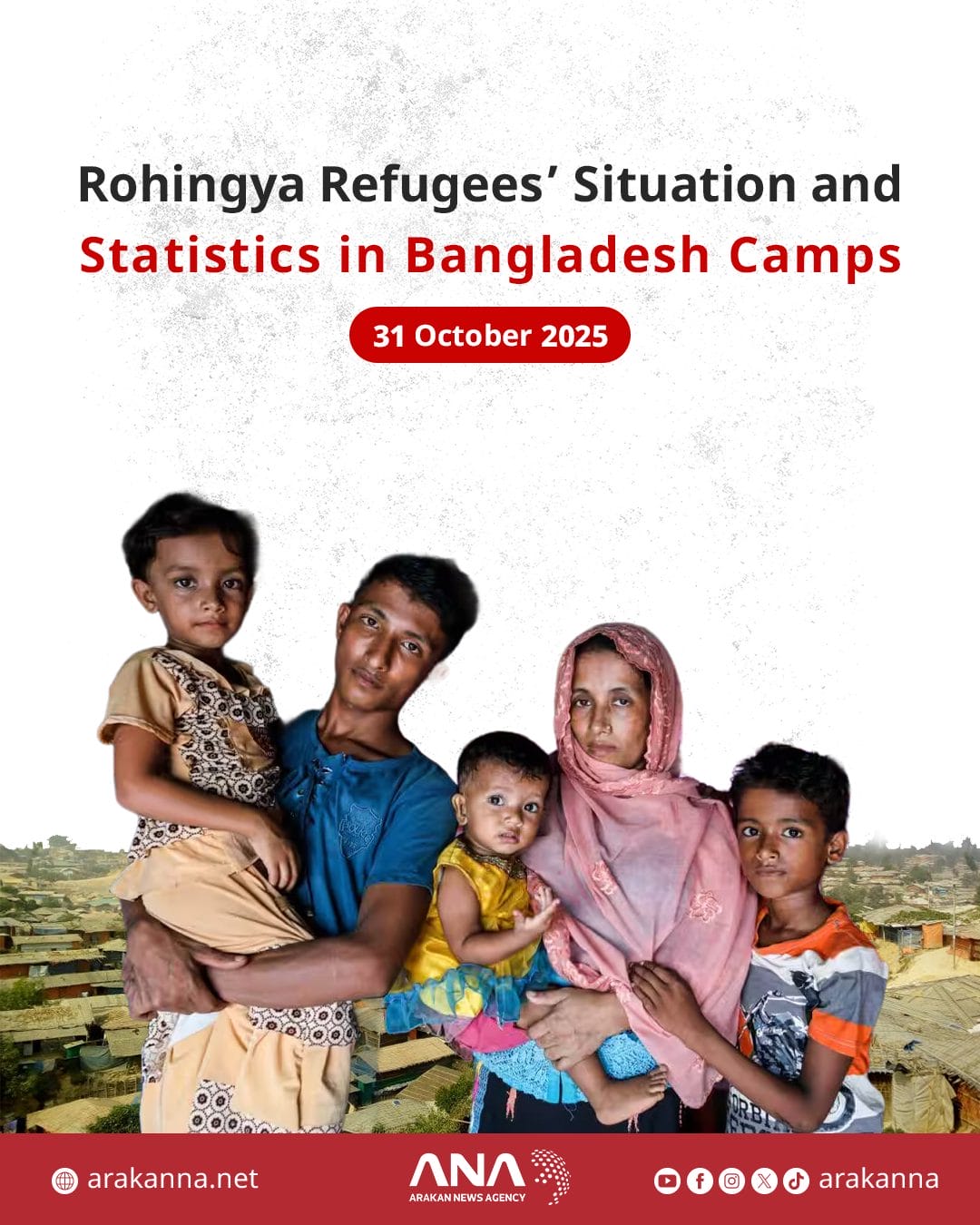Arakan News Agency | Exclusive
Rohingya children in Cox’s Bazar camps in Bangladesh face a daily challenge of searching for cooking fuel due to the shortage of liquefied petroleum gas (LPG) cylinders distributed by humanitarian organizations. This forces many of them to collect firewood from the surrounding forests and hills around the camp.
Humanitarian workers warn that these practices expose children to injuries, harassment, and the danger of encountering wild animals. They also contribute to deforestation and the degradation of the local environment. The lack of regular gas supplies forces families to choose between waiting for a long time to obtain it or sending their children on arduous and dangerous missions.
Teachers in the camp assert that this situation directly affects children’s education, as many are forced to miss temporary learning classes to spend hours collecting firewood or standing in line to get gas. This impact is particularly felt by girls who are more often tasked with household chores.
While the introduction of gas has helped reduce the health risks from smoke inhalation and eased tension with host communities over forest exploitation, the distribution system remains fragile, suffering from delays and high demand.
Volunteers state that the situation reflects the contradiction between the progress made and the remaining significant gaps in meeting the refugees’ needs, asserting that “every child deserves to be in school, not in the forest carrying an axe.”
More than a million Rohingya refugees live in Bangladesh after fleeing Myanmar due to a genocide campaign launched against them by the Myanmar military in 2017. Their displacement increased after renewed fighting between the Myanmar army and the Buddhist Arakan militias (Arakan Army) in November 2023, which subjected them to violence, displacement, and forced recruitment.

